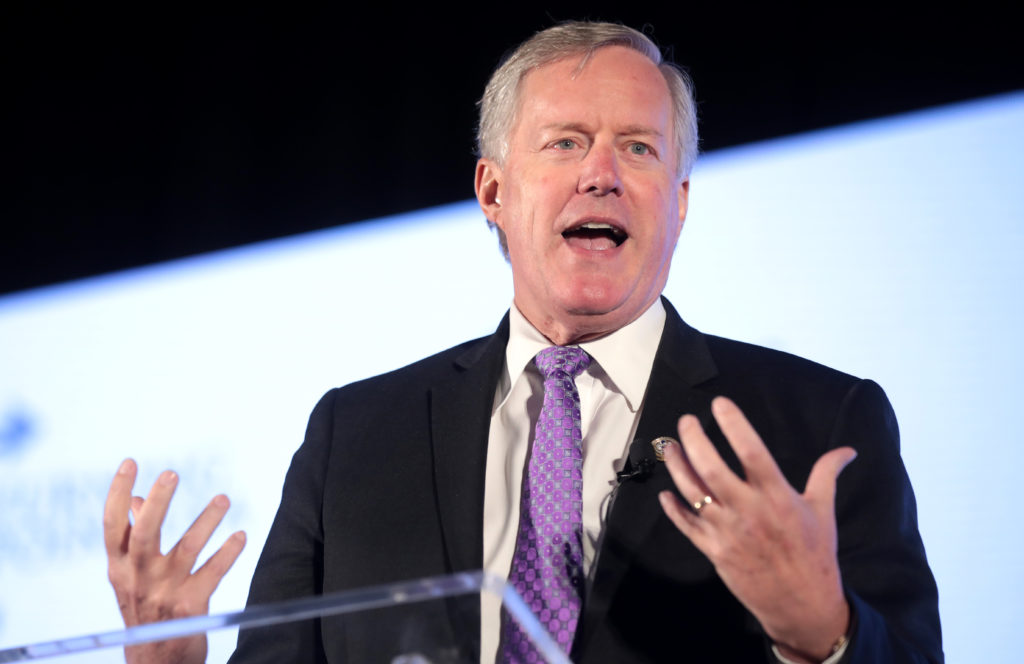What’s really going on with the Mark Meadows prosecution?

Blink and ∂you might have missed it. In its ongoing effort to get the courts to force Mark Meadows to testify, the January 6th Committee causally mentioned in a publicly available court filing on Friday night that it has proof Meadows personally conspired with several specific House Republicans to try to overthrow the 2020 election results.
We all already pretty much “knew” this was the case. But there’s a world of difference between “knowing” something and being able to prove it. Court cases are all about evidence and proof. For the committee to reveal in a court filing that it knows Meadows was conspiring with House Republicans, it must have the kind of evidence that it expects the judge will see as proof. So why didn’t this come out before?
The short answer is that the January 6th Committee has spent months working its way up through the hierarchy of witnesses, convincing some into flipping on others, and so on. It’s clearly gearing up for primetime televised hearings which will be carried out like a trial against Donald Trump and his co-conspirators. Some of the evidence will be leaked out now, so the media will hype things, causing more Americans to tune in for the hearings. Some of the evidence will be saved for the hearings themselves, in order to shock mainstream American audiences into concluding that Trump and the Republican Party really are a criminal conspiracy that must be voted against and sent to prison.
That’ll all play out soon enough. In the meantime, it brings us back to the same question we’ve all been grappling with for a few months. When the committee referred Steve Bannon for contempt, the DOJ promptly indicted him three weeks later. So when the committee referred Mark Meadows for contempt, why didn’t the DOJ make the same prompt move?
We’ve all watched Bannon try to use the court hearings in his contempt case to try to force the DOJ to reveal more about the broader criminal case that it’s obviously been building against him. Bannon has thus far mostly failed at this. But it’s been a real pain the DOJ’s backside – and with a less reasonable judge, it could be going more poorly.
It seems only logical that while the DOJ was willing to give the January 6th Committee the one prompt contempt indictment it needed against Bannon in order to scare other witnesses into testifying (which has worked in spades), it wasn’t willing to risk screwing up the presumably far larger criminal case against Mark Meadows by also prematurely indicting him for contempt. If Meadows were already indicted for contempt, he’d be in court right now, trying to use it to force the DOJ to show the rest of its hand.
That’s the most logical and perhaps the most likely explanation. The other plausible explanation is that after Mark Meadows gave the committee all that incriminating evidence against himself and then changed his mind about it, he realized that he had completely screwed himself – and so he began secretly cooperating with the DOJ against Trump. In such case he’d be refusing to testify to the committee, for fear of prematurely revealing the progress of the DOJ’s case against Trump.
Pick whichever explanation you think is most likely. It’s one or the other. There is no third scenario where the DOJ has just been sitting with its feet up and doing “nothing” about the Meadows contempt indictment; nothing works that way in the real world.
The big thing to keep in mind is that whatever evidence the January 6th Committee has against Mark Meadows, the DOJ surely has it as well. We don’t know if the committee has been providing that evidence to the DOJ in real time. But we do know that most of the committee’s evidence against Meadows came from Meadows, when he very publicly forked it all over to the committee. At the least, the DOJ would have seen those headlines and immediately subpoenaed Meadows’ electronic communications from the service providers.
What’s remarkable is just how truly ugly Mark Meadows’ crime spree has turned out to be. The contempt charge is going to be the least of his worries. He’s looking at seditious conspiracy, which at his age is a de facto life sentence, along with numerous other charges. Meadows was running point for the entirety of Trump’s criminal plot to overthrow the election. If Meadows doesn’t cooperate with the DOJ, his life is over. If Meadows is cooperating with the DOJ, no one in Trump world stands a chance.
